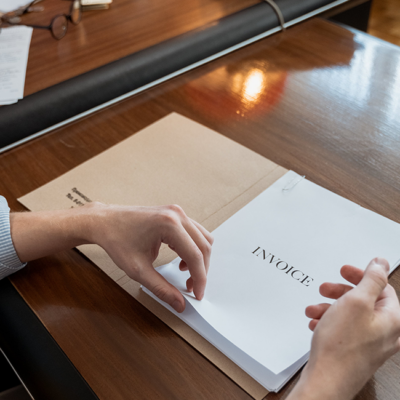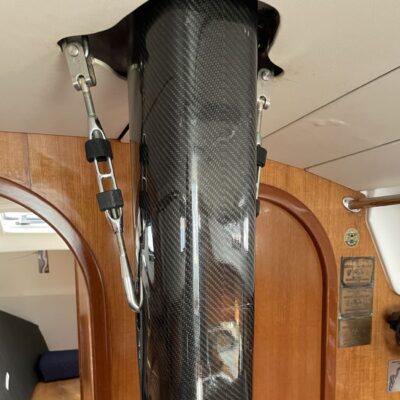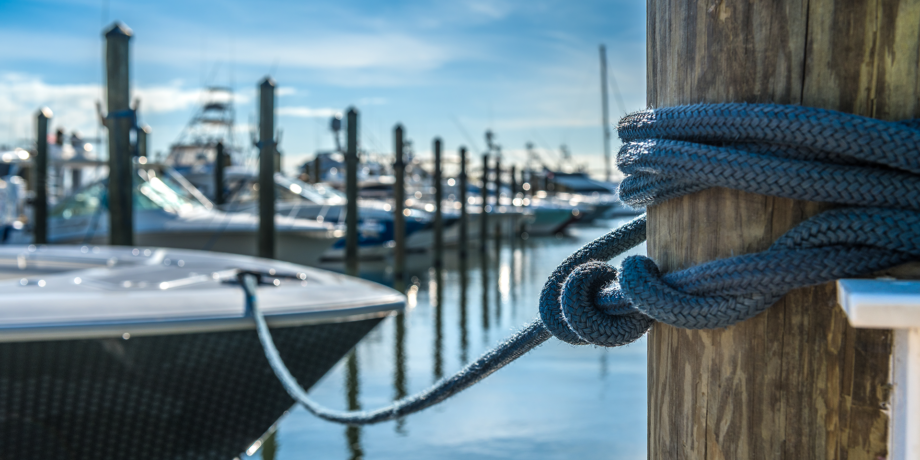What to Expect When You’re Inspecting: Some Info and FAQs About Marine Surveys
The marine survey, or pre-purchase inspection, is without a doubt the most important step in the buying process. It is the critical due diligence that takes place once an offer is accepted and a contract & deposit are in place.
A typical survey will include a “short haul” at a boatyard, a sea trial, testing of all mechanical and electrical components, and structural testing using a moisture meter and a phenolic hammer. In some cases, a separate survey for the engine(s) or rig will be performed, and oil samples from engines, drives, & generators will be taken for analysis.
Your insurance company and lender (if applicable) will require a copy of the survey and will expect the surveyor to be accredited by SAMS or NAMS, the two major organizations in the trade.
Choosing the surveyor is an important step, and one that some buyers make too hastily in the excitement of a deal coming together. If you are working with a buyer’s broker, they can recommend some names, but it is important to talk directly to the surveyor before booking them. A five-minute chat will give you a clear idea of how he or she communicates and what you should expect in their report. Otherwise, ask around to boatyards, other boaters and check online. In most parts of the world, you will hear the same short list of names come up again and again. If in doubt, don’t be afraid to ask for references.
Here are some Frequently Asked Questions about the survey process:

1. What is this going to cost me?
$25-50/ft depending on region and the boat. Additional expenses would be for the short-haul at a boatyard (the vessel is lifted out of the water and hung in the straps for a period of time so the hull and running gear can be inspected), powerwash, and separate engine and rig surveys if needed.
2. The seller has a recent survey, can’t I just use that?
A previous survey that was done for insurance or informational purposes only is of very limited value. Only a pre-purchase survey done by a surveyor that is paid by the buyer (i.e. you) will be of any value.


3. How long should a survey take
Typically, a boat of 30-42’ should take most of the day, including the short-haul. Boats with fewer systems (for instance a 25’ center console, or a small daysailor) can usually get done in a half-day.
4. Can the boat be surveyed in the winter?
Boats can and do get surveyed in the winter, but it is important to ask your surveyor what limitations this entails. For instance, if the laminate structure of a boat has wood or foam coring, that material will respond differently when tested with a moisture meter or phenolic hammer. When a vessel cannot be launched to allow for testing of the engine(s), generator, air conditioning etc an escrow is usually established. This is an important area to talk through with your broker prior to signing a purchase agreement.


5. Am I obligated to share the survey report with the seller?
No, the survey report is your property, and you are under no obligation to share it with anyone. If you are using the survey findings to negotiate a price adjustment from the seller, you will need to provide some documentation from the survey report.

6. Will the surveyor perform a rig inspection on a sailboat?
Most marine surveyors will examine the fittings at deck level, including turnbuckles, furling equipment and gooseneck, and they will visually inspect the spreaders and mast from the deck. But they will not go aloft. Your surveyor should be able to advise you on whether a seperate rig inspection (typically peformed by a rigging specialist) is recommended.
Still have questions? Get us at info@flagshipyachts.com for answers.
Learn more and find a local surveyor: The Society of Accredited Marine Surveyors
© 2024 All rights reserved

